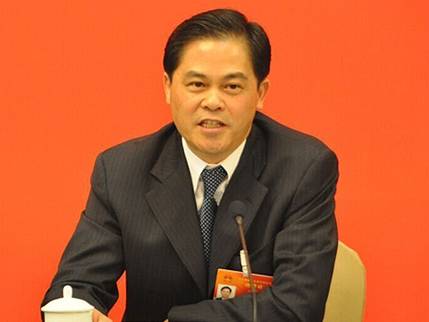Yunnan: 60 bln yuan for poor families' relocation
- By Hou Jieying
 0 Comment(s)
0 Comment(s) Print
Print E-mail China.org.cn, March 10, 2016
E-mail China.org.cn, March 10, 2016
Yunnan Province, a kingdom of biodiversity as well as a region with multi-ethnic settlements, is facing serious tasks of poverty alleviation and industrial upgrading. How can Yunnan navigate these challenges? Chen Hao, deputy to the National People's Congress and governor of Yunnan, answered these questions in an exclusive interview with china.org.cn.
 |
|
Chen Hao, Governor of Yunnan Province |
Chen Hao introduced that there are still 88 poverty-stricken counties and 4.71 million people with poverty alleviation files in Yunnan, saying "Time is tight and the burden is heavy because we have set a target to lift one million citizens out of poverty every year for the next five years."
During the 13th Five-Year Plan, Yunnan will stick to the strategy of precise poverty alleviation, adjusting policies to local conditions. It will mainly focus on four contiguous poverty-stricken areas including the mountainous border region in western Yunnan, the Wumeng mountainous area, Diqing Tibetan area, and the stony desert region. Yunnan will also accelerate the implementation of the "Five Groups Project" and increase capital investment to win the battle of poverty alleviation, ensuring that all of the province's poor will be lifted out of poverty by 2020.
Chen said, in regard to the key issues including whom to support, who and how to conduct poverty alleviation and how to get rid of poverty, the government has made a number of precise poverty alleviation plans and measures.
For instance, Yunnan started to create poverty alleviation files throughout the province last year, including four contiguous poverty-stricken areas, 476 poor counties and 4,277 poverty-stricken villages, to ensure all the poor people being targeted.
At the same time, Yunnan will invest 60 billion yuan (US$9.2 billion) to accomplish the relocation of 300,000 families, or a population of one million, by building more than 3,000 new villages.
Additionally, Yunnan has decided to allocate more financial, cultural and educational resources to poor areas and strengthen their infrastructure construction and public service supply. He added that Diqing and Nujiang have become the first two ethnic minority autonomous prefectures to implement a 14-year free education system this year.





